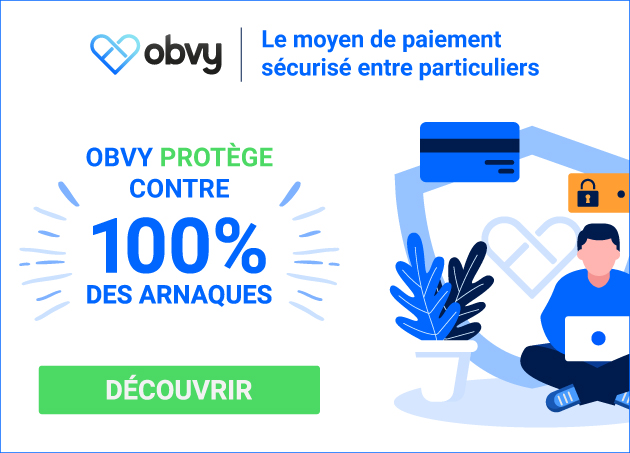Online Shopping Scams: How to Get Your Money Back and Protect Yourself in the Future?
Buying or selling goods online via classified ad sites has become commonplace. However, payment security remains a major concern when it comes to transactions between private individuals. With online scams becoming increasingly sophisticated, it's essential to know what you can do to protect your transactions. Your data can be compromised and used against your will and you don't know how to get out of this mess. These scams can cause serious financial damage to victims.
In this article, we'll give you some advice on how to secure your online transactions between private individuals on classified ad sites.
Favour secure payment methods
When you make an online payment between individuals, it is essential to use secure payment methods. Opt for secure payment platforms that offer fraud protection and refunds in the event of problems. Avoid cash payments, postal orders or direct bank transfers, as these methods can be risky and do not guarantee protection for the buyer or seller. Make sure you also check the buyer and seller protection policies of the platform you are using so that you know your rights in the event of a dispute.
Questionable behaviour by the seller
It is important to be wary of sellers who ask for sensitive personal information, such as your credit card number or national insurance number, without a valid reason. It is important to understand that this information can be used for fraudulent purposes, such as making unauthorised purchases or stealing your identity. As a general rule, sellers should only ask for basic information such as your name, address and delivery details.
If a seller asks you for sensitive information, ask yourself questions and examine the situation carefully. Check whether the seller has a reliable reputation and positive reviews. If you have the slightest doubt, it's best not to share your personal data.
Offers that are too tempting
When browsing classified ad sites, beware of offers that seem too good to be true. Scammers often use extremely low prices to attract buyers, but these offers may be hiding scams. Beware of sellers who are in a hurry, who insist on quick payment or who ask for sensitive personal information. Research the seller, check the details of the advert and ask for additional proof if necessary, such as photos or more information about the item. If something looks suspicious, trust your instincts and walk away. You can also check the seller's identity, by asking them to provide proof of their identity in the form of ID, or ask for an original purchase invoice to prove the legitimacy of the transaction.
Hand-delivered
For high-value transactions or sensitive purchases, it is advisable to meet in person. Organise a meeting in a safe public place to finalise the transaction and inspect the item before making payment. This will allow you to check the authenticity of the item, its condition and ensure that it matches the description in the advert. If this is not possible, use secure payment methods and ask for proof of dispatch or delivery before releasing the funds.
Curious to find out more about the different types of scams? Have a look at our articles on the DHL scam, the wedding gift scam or the Mondial Relay scam.

Secure your purchases with Obvy
We also advise you to use Obvy to secure your transactions.
Obvy offers a payment method specially designed to secure transactions between private individuals. Whether you are buying or selling between private individuals on ad platforms such as Leboncoin or Vinted, Obvy acts as a trusted third party to help you avoid any scams.
In the event of a counterfeiting scam, you can quickly and easily return the product to the seller and get your money back. What's more, you'll have all the information you need about the seller in the event of legal action.
